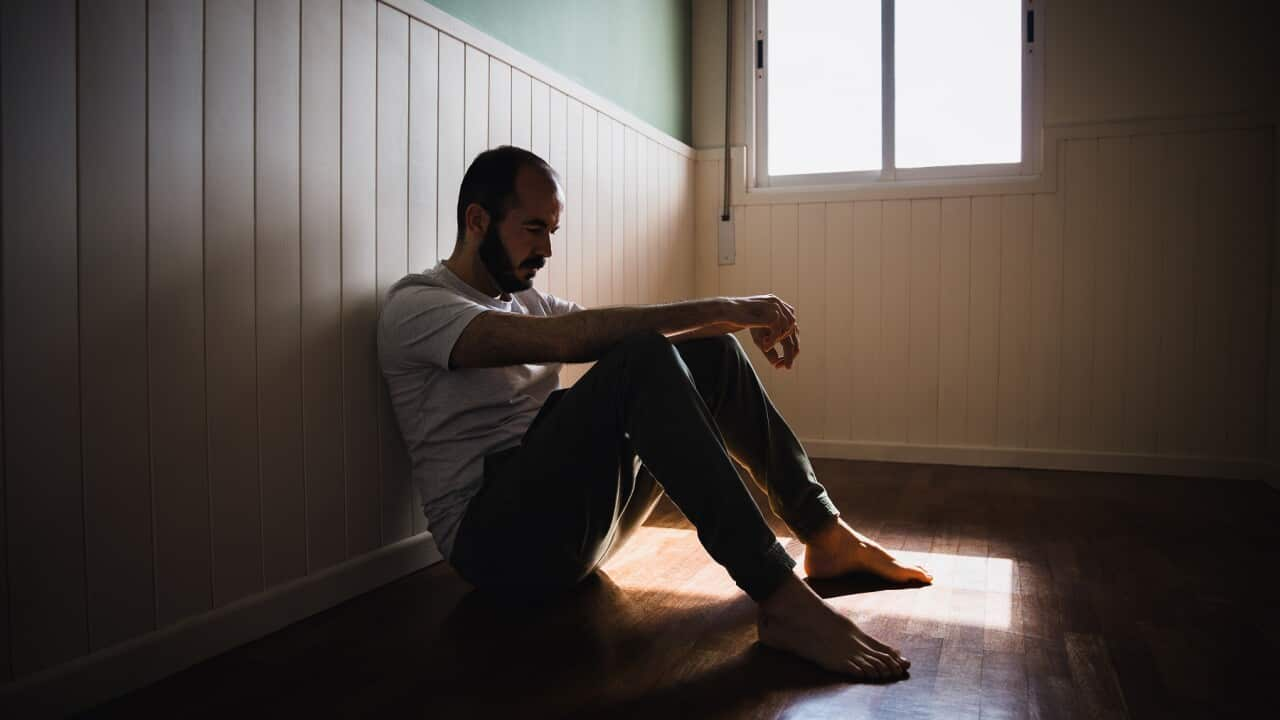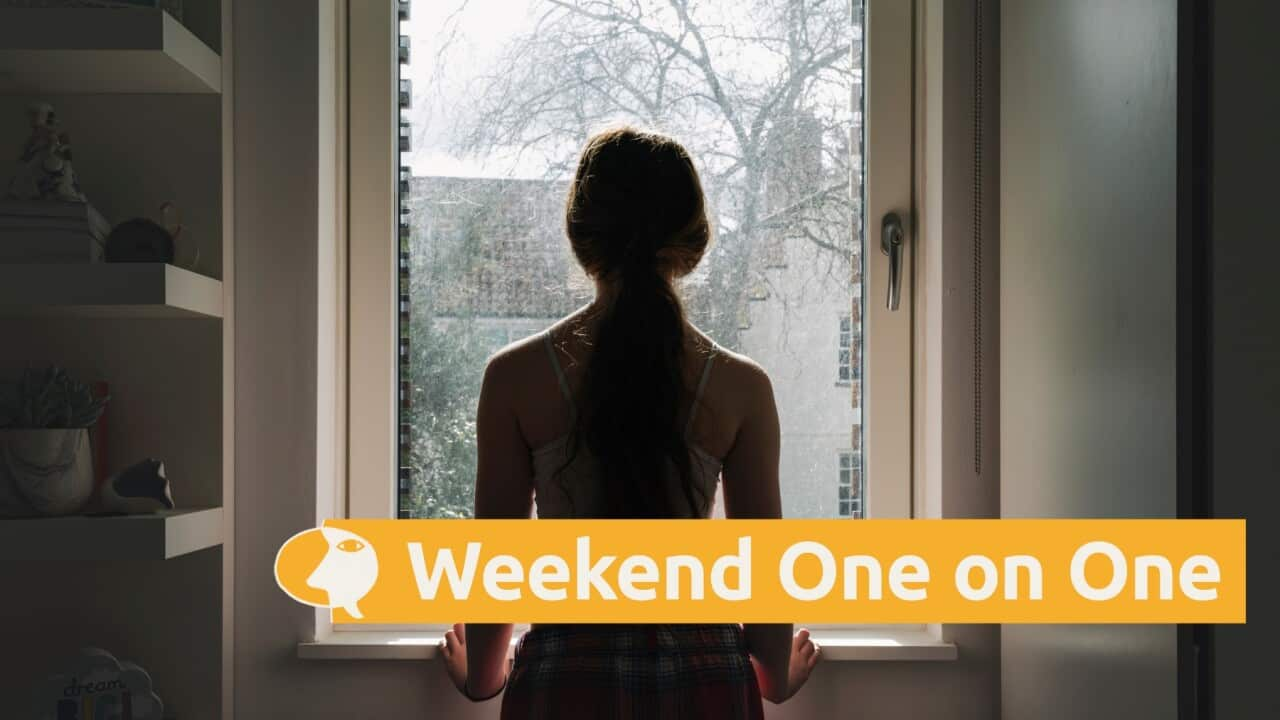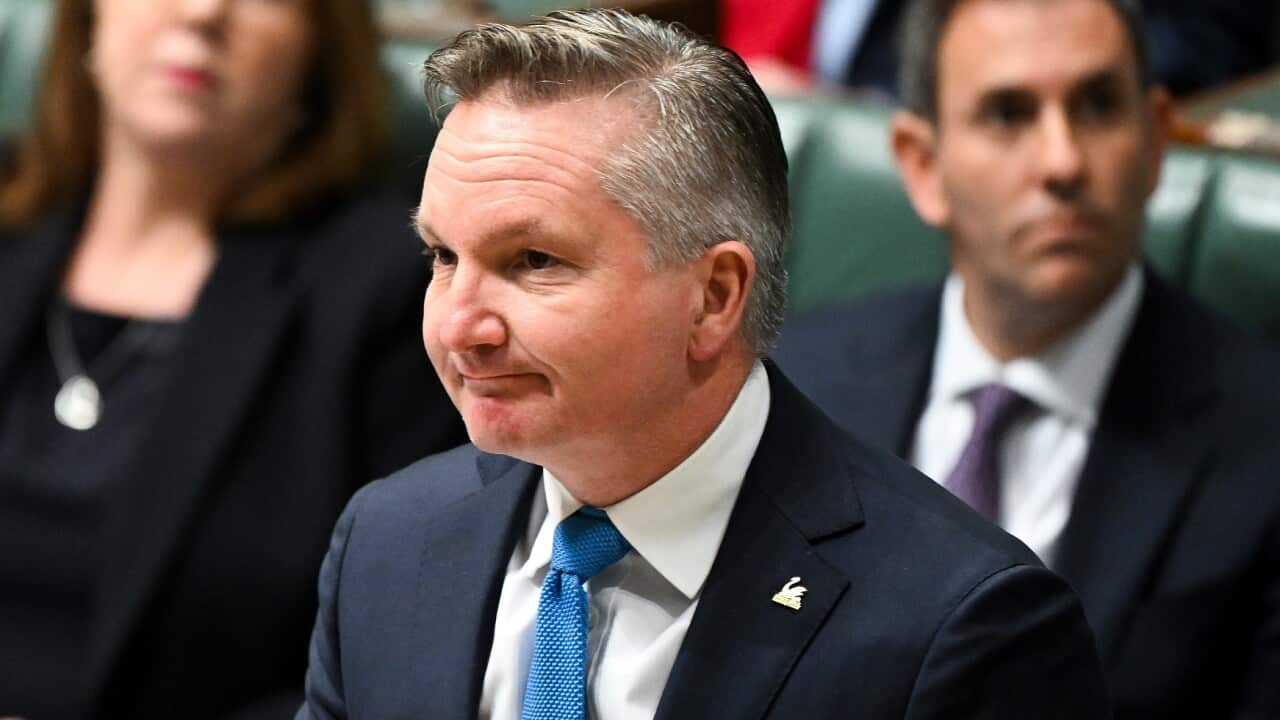Listen to Australian and world news, and follow trending topics with SBS News Podcasts.
TRANSCRIPT
Father of two Mark Burns was in a rut, and like many Australians would unwind with a drink and some TV after a long day of work and family life.
But after a while, he was developing some bad habits.
''I was just burning the candle at both ends mate and decided that come 11 o'clock on a Tuesday night once everything was done, that I deserved a glass of red wine and to watch Netflix until one in the morning giving myself five hours sleep and doing it all again. So not hurting anyone, which I told myself. Except myself really.'
With some encouragement, Mr Burns decided to make a change.
"I started walking in the morning at the suggestions of my lovely wife Beck to start the day on the right foot."
Mr Burns' regular walks have since turned into a national movement for men seeking a lifestyle change and social connection; a group called The Man Walk.
The Man Walk estimates that 136,656 men across 83 locations have got together to have a chat and a walk in the seven years since its conception.
"The stories from the blokes there are just amazing. It'll be like Mark, I haven't haven't had another bloke to speak to for 30 years, or all the way from that to the Man Walks saved my life and I've lost 20 kilos from exercising every week... now outside of The Man Walk these men catch up and connect and have friendships so we are truly decreasing isolation and loneliness as a health prevention."
Mr Burns says the group started with just a few men in his southern Sydney community of Kiama, and grew "by accident", becoming increasingly popular. While he's enjoyed the health and social benefits of regular walks with friends, he keeps going for a private reason.
"My personal motivation in life is to make, as I say to myself, make my mum and dad proud who I lost many years ago, dad in a car accident and mum with cancer. That's a sort of personal driver for me."
New research has shown the benefits of social programs for men dealing with loneliness and mental health issues.
The study of 2,000 Australian men found that one in two males aged between 35 and 50 felt stress or anxiety affected their everyday life.
Around 31 per cent of men said their mental load is affecting their job performance.
Meanwhile, one in three regional or rural men felt isolated due to their remoteness.
The research was compiled by Mentoring Men, which pairs male mentees with typically older mentors for free peer support and conversations.
The organisation's Chief Executive Officer, Filipe Gama e Silva, says countless research pieces have painted a stark picture of mental health.
"We're in a loneliness crisis across Australia. And whether it's our own research or independent other, countless of other researchers research pieces, we also know what the impact of that is, right? And men who take their own lives, men who suicide, men who are lonely are twice as likely to do that. And so that's lives lost, that that's families ruined. The impact is huge."
Most of the men who have accessed mentoring through the group want to talk about relationship challenges, whether it's romantic or familial.
General anxiety around the future is also a common concern, particularly for men in their middle 30's.
"Nearly 40% of the conversations that are happening in a mentorship is around relationships. It's around relationship challenges that they're having at home, whether it be with their children, with their partner, but of course there's conversations around, well, what does the future look like? As I said, the average age of the bloke that we help is mid thirties. It's a big transitional phase in one's life. Life becomes really real. You've got your kids, your marriage, your mortgage, whatever else it might be. There's a lot of things that you're processing"
The Mentoring Men research showed 42 per cent try to "push through" on their own when dealing with their personal challenges.
Associate Professor Michelle Lim, from the University of Sydney's School of Public Health says loneliness is more than just a mental health issue.
"Loneliness and social isolation is also potentially an equity issue. So it predominantly influences or disproportionately affects people from lower socioeconomic backgrounds or living in more deprived neighbourhoods with fewer or poorer access to resources in their community. So this is something that is an issue with people who are financially strained. And even if you were having a high income but you felt like you were doing more speaks to the kind of cost of living crisis that we're all going through now we know that loneliness, I guess the risk of actually experiencing persistent loneliness is actually significantly higher."
Associate Professor Lim says $2.7 billion is spent each year in Australia because of loneliness and "health underutilisation".
"We do expect that this 2.7 billion is very much a conservative amount, which we pay every year already because people are lonely. They might be staying more unwell for longer periods of times, having increased visits to the GPs or staying at hospitals for longer. Those sorts of things do add up and so we are paying the costs. What we don't have is really a proper solution to address that."
One in five Australians aged over the age of 15 have delayed or avoided mental health care due to cost, according to the Royal Australian College of General Practitioners.













